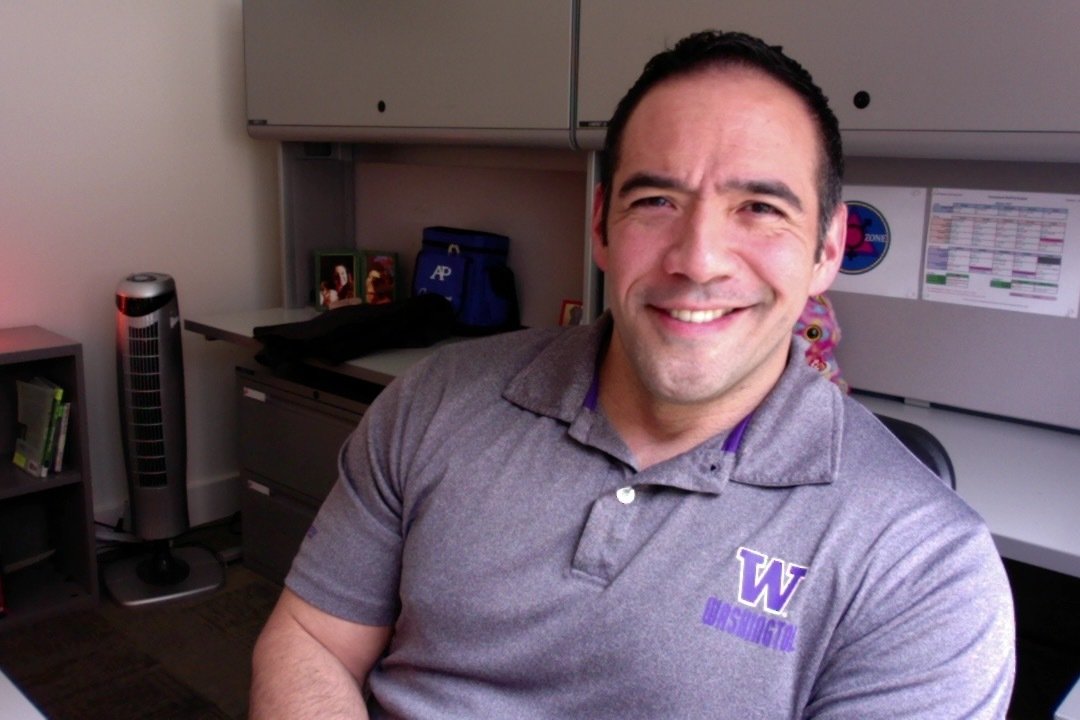Asao Inoue's
Antiracist Writing Assessment Ecologies:
Teaching and Assessing Writing for a Socially Just Future
2015
winner of 2017 Conference on College Composition and Communication Outstanding Book Award. Council of Writing Program Administrators 2017 Best Book Award.
Who?
Asao is Director of University Writing and Associate Professor of Interdisciplinary Arts and Sciences at University of Washington.
Used to be at Fresno State.
Chair of 2018 CCCC in Kansas City.
Co-edited Race and Writing Assessment (2012).
Lifts weights.

Intro
"We should theorize and practice writing assessment simultaneously" (3)
two strands woven into book:
holistic writing assessment
theorizing writing assessment to "cultivate antiracist agendas" (3)
...
Why race? Why not sex, gender, religion, social class?
He's lived it. He feels it. Still.
&
"The dynamics are similar. They are all dynamics of power" (5)
...
Writing assessment as a ecology, "a complex system made up of several interconnected elements" (9)
"how can a conscientious writing teacher understand and engage in her classroom writing assessments as an antiracist project with her locally diverse students?" (9)
...
"Classroom writing assessment is more important than pedagogy because it always trumps what you say or what you attempt to do with your students. And students know this. They feel it." (9)
...
four types of writing assessment via Tchudi (1997)
response
assessment
evaluation
grading
(see page 15)
...
Great analogy of Olympic sprinters page 17-18.
Thus...
"We define 'good' writing in standard ways that have historically been informed by a white discourse, even though we are working from a premise that attempts fairness." (18)
"White students uniformly and historically do better on most if not all writing assessments, large-scale or classroom" (22)
...
"The point isn't to get rid of race. Race is one way we mark diversity and complexity, difference. The point is to get rid of racism, unfair racialized hierarchies" (23).
...
lovely last paragraph
Chapter 1
The Function of Race in Writing Assessments
The why before the what, the how
why an antiracist project is important
tackles race, racial formation, and racism
via
racial habitus
...
Overriding question driving this chapter:
"how might we define race and understand its function in classroom writing assessments so that we can articulate antiracist writing assessments?" (25)
...
A function of race in classroom writing assessment:
race connects with assessment
success in assessment confers social and economic privlege
good writing often reveals middle class set of tastes,
"clear white racial set of experiences and perspectives" (28)
"clear white racial set of experiences and perspectives" (28)
...
only 14.6 of all teachers are Black or Latino/a
40% no teacher of color
"If the dominant discourse of the academy is taught almost exclusively by white, middle class teachers, then is it possible that such conditions will affect the discourse valued in writing assessments?" (30)
...
Racial habitus socially constructed in at least 3 ways:
discursively / linguistically
materially and bodily
performatively
(sections starts on 42)
...
White racial habitus we writing teachers tend to enact:
focus on individualism, self-determination, self-reliance
rational
failure = individual problem not structural one
logical
clarity and consistency
problems are those that disrupt autonomous functioning
pages 48-49
...
"To put it bluntly, when the function of a writing assessment is primarily to promote a local SEAE or dominant discourse, without regard to the literacies that various racial formations bring to the classroom, or the various ways the particular racialized linguistic structures are judged by the teacher, then the students may be treated unfairly" (56)
fairness as a white liberal value (56)
...
The perceived writing ills of Hmong students at Fresno State
"Perhaps, the texts [Professor X] saw from his Hmong students would have indicated that his assignments didn't fit very well, or his curriculum might need to be better adapted to his students' needs" (66)
Next Chapter
unpacks what he does in his classroom
next meeting
October 27
Asao Inoue's
By mrifenburg
Asao Inoue's
- 1,543



